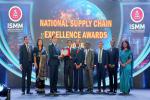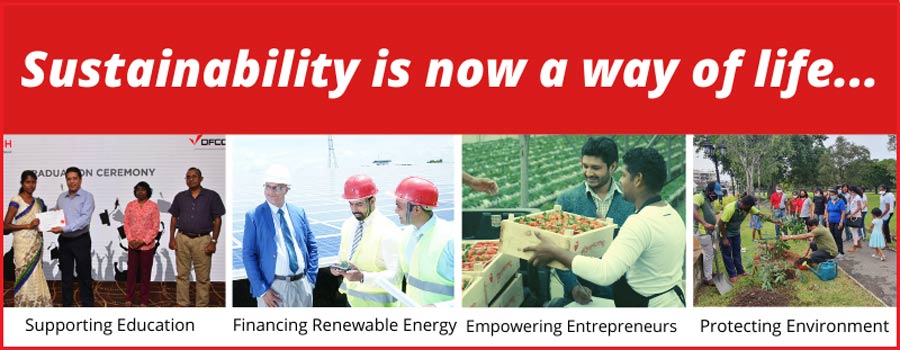The Bank’s Sustainability Policy, Strategy, and Plan for the period up to 2030 builds on its historical achievements and stems from a belief the Bank holds that it must contribute towards strengthening resilience among its stakeholders, and resilience in Sri Lanka, given the greater likelihood of uncertainties and challenges across the globe during the next decade.
The Bank aims to create long term stakeholder value through sustainability.
The Bank’s new Sustainability Strategy seeks to strengthen sustainable business practices, greater accountability and inclusive value creation in collaboration with all its stakeholders.
It incorporates sustainable best practices across all business verticals and processes to lessen any negative environmental and social impact and engages all stakeholders across its value chain in implementing the Strategy.
The Bank adopts a triple-bottom line (TBL) value creation framework –taking care of People, Planet and Profit simultaneously – which entails conducting its business in a responsible and inclusive manner, and ensuring economic, environmental and social value addition to all stakeholders.
DFCC Bank’s Sustainability Strategy has three key pillars.
Firstly, ‘Resilient Business’ – contributing to sustainable economic growth involves extending support to Green Financing and Sustainable & Social Entrepreneurs’ including renewable energy projects and also providing SMEs, exporters and selected sectors with customized concessionary financial schemes.
This also includes implementation of the Social and Environmental Management System (SEMS) that ensures the projects funded by the Bank meet required local and international environmental and social regulations, and addresses any environmental and social risks.
The second pillar, ‘Impact for Resilience,’ is one through which the Bank hopes to significantly increase its own efficiency, while reducing its environmental impacts.
The Bank will work to improve resource efficiency, while minimizing waste and improving resource productivity, with the end goal of achieving carbon neutrality by 2030.
The third pillar revolves around building ‘Resilient Communities’ and developing a sustainable culture to ensure staff and customer-wellbeing.
The strategy also highlights its multi-thematic focus areas that contribute towards resilience known as the 6Es.
They are Education, Elderly, Entrepreneurship, Environment, Emergency Relief and Exercise.
Several projects have already been rolled out by the Bank under these focus areas including the ‘Samata English’ Education Programme, ‘DFCC Vyapara Sahaya’ Skills Development Programme for Entrepreneurs, the recently conducted ‘DFCC Digital Dansala’ to provide relief to communities affected by the Pandemic and Wellness initiatives for the staff. Many other projects are in the pipeline to be implemented in the near term.
The operationalizing of the Strategy is being driven by several key enablers; collaboration, digitizing, empowerment, innovation and inclusivity.
In implementing the new Strategy the Bank has formed an Executive Sustainability Management Committee and several cross-functional internal task forces and committees to educate staff, and operationalize the Bank achieving its goals by 2030.
Commenting on the new strategy, DFCC Bank CEO Lakshman Silva stated,
“DFCC Bank is proud to announce the integration and implementation of its long-term sustainability strategy.
This is the result of on-going stakeholder engagement and showcases our drive to develop a resilient, sustainable future for all, while cementing our position as a leader in sustainable banking.
The long-term strategy incorporates elements of our current Vision 2025 Strategy, and sets broad targets to be achieved by 2030, with the end-goal of being a Carbon Neutral bank.
We pledge to place prime importance on ensuring inclusivity, and creating economic, social and environmental value for all stakeholders - a crucial element within the Bank’s journey to becoming the most customer-centric, digitally enabled bank in the Country.”
The new Sustainability Strategy highlights DFCC Bank’s efforts to align with the United Nation’s Sustainable Development Goals (SDGs) and enhances the country’s efforts to achieve them.
DFCC Bank is also a pioneering signatory to the 11 Sustainable Banking Principles, developed and initiated by the Sri Lanka Banks’ Association (SLBA), under its Sustainable Banking Initiative (SBI).






















